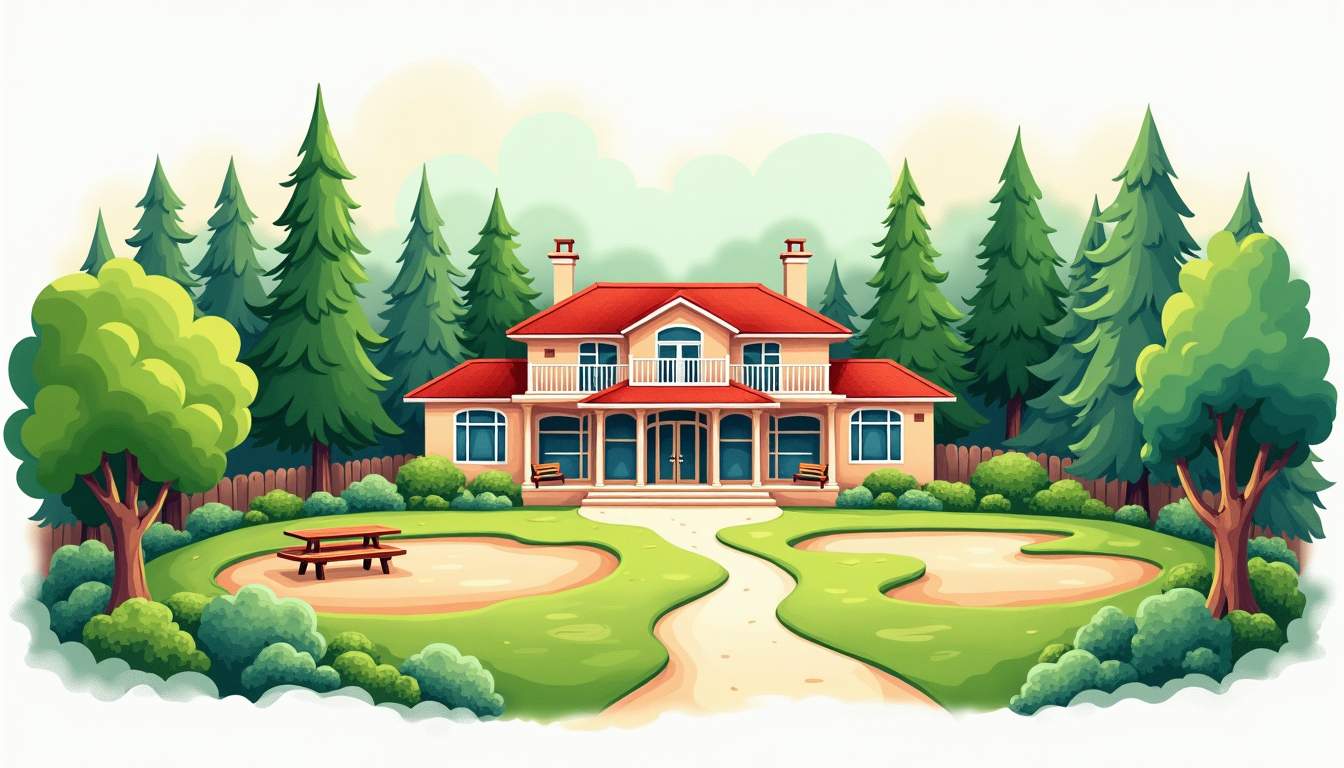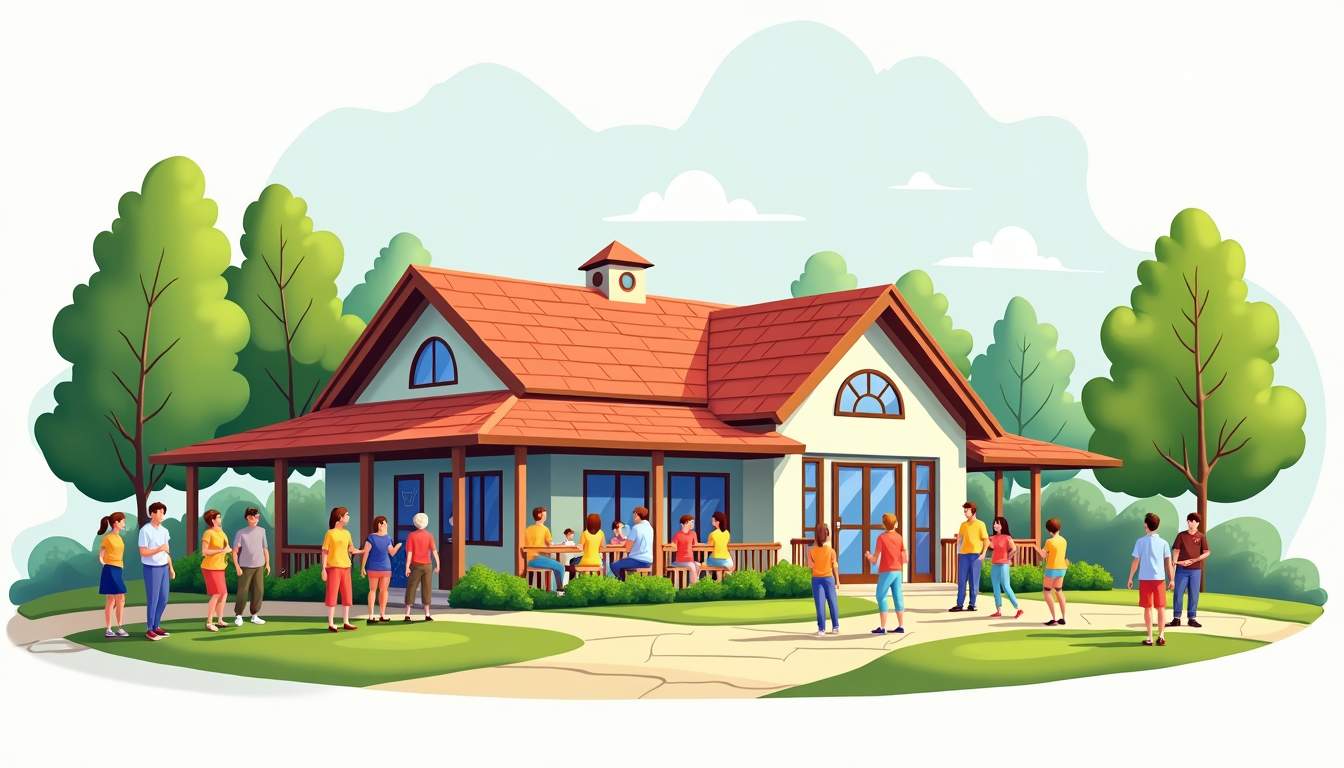
Tennessee National offers more than a place to play golf; it provides a gateway to a community where friendships are formed, interests are explored, and local life becomes richer. Clubs at Tennessee National—from athletic and outdoor groups to culinary and cultural gatherings—serve as the connective tissue that brings neighbors together. This article explores the variety of clubs available, the benefits of joining, how to find the right fit, and practical tips for making meaningful connections through membership.
Clubs create structured opportunities for people with common interests to meet on a regular basis. Regular interaction around a shared passion lowers the barrier to conversation and coaxes casual acquaintances into sustained relationships. At a community like Tennessee National, which blends seasonal residents, retirees, families, and professionals, clubs act as a social leveling field where age and background matter less than shared enthusiasm.

Participation in club activities also anchors a sense of belonging. When calendars include recurring events—weekly tennis drills, monthly wine tastings, or an annual garden show—members develop shared rituals and memories. These rituals are the small threads that weave individual experiences into a collective identity for the neighborhood.
Moreover, clubs often extend their impact beyond social connections by encouraging personal growth and community service. Many clubs host workshops, invite guest speakers, or organize volunteer initiatives that enable members to learn new skills or give back to the local area. This dual role of fostering both enjoyment and contribution reinforces a deeper investment in the community's wellbeing.
Clubs also provide a vital platform for intergenerational exchange. Younger participants gain wisdom and mentorship from seasoned members, while older residents find rejuvenation and purpose through active engagement with fresh ideas and youthful energy. This dynamic blend enriches the club experience and helps sustain a vibrant, inclusive community culture over time.
The club ecosystem at Tennessee National is intentionally diverse to reflect the varied interests of the community. Athletic clubs cater to those seeking active lifestyles, while social and special interest clubs provide spaces for slower-paced, intellectual, or culinary pursuits. A sampling of common clubs includes golf societies, tennis and pickleball groups, fitness classes, book clubs, wine and spirits aficionados, garden and conservation societies, and volunteer/action groups that support local causes.
Golf remains central to life at Tennessee National, but the golf societies are far from monolithic. Some groups focus on competitive play and handicaps, organizing regular tournaments and league play. Others prioritize social rounds and mixed-format events that encourage members of all skill levels to participate. Special interest golf clubs—such as senior groups, junior clinics, and women's nights—create targeted opportunities for skill development and camaraderie.
Racquet sports have surged in popularity, and Tennessee National offers structured clinics, open-play sessions, and ladder events to keep members engaged. Pickleball, in particular, has attracted a wide age range, helping to blur generational divides. Regular round-robin play and seasonal mixers are common formats that encourage socializing after play, often over light refreshments at the clubhouse.
Fitness clubs offer group classes like yoga, Pilates, spin, and strength training. These sessions are valuable not only for physical health but also for the social accountability they create—seeing familiar faces in the same class encourages ongoing attendance and makes it easier to strike up conversations. Wellness-focused clubs may also include nutrition talks, mindfulness workshops, and walking groups that explore nearby trails.
Beyond athletics, Tennessee National supports a rich array of social clubs that appeal to varied tastes and lifestyles. These clubs offer structured programming and informal gatherings alike, providing members with multiple pathways to engagement.
Book clubs convene around monthly selections, often pairing literary discussions with author talks, themed dinners, or visits to local cultural venues. Cultural clubs might focus on art history, music appreciation, or film screenings, creating a low-pressure environment for members to expand their horizons while making friends who share a curiosity for the arts.
Culinary clubs range from informal supper clubs to organized cooking classes led by guest chefs. Wine clubs typically offer tastings, pairing nights, and educational sessions on varietals and regions. These gatherings harness food and drink as social lubricants, making it natural to converse, laugh, and bond over shared tables and plates.
Garden clubs often come with a mission: beautify shared spaces, host plant swaps, and run community gardening projects. Outdoor clubs might organize birding walks, fishing excursions, or conservation projects that connect members to the local landscape. These clubs appeal to those who prefer hands-on activities and value environmental stewardship.
A strong community invites participation across age groups. Clubs at Tennessee National deliberately cultivate programs that are accessible to younger families, working professionals, and older adults alike. Junior sports clinics foster a pipeline of young members who grow into adult leagues, while volunteer clubs encourage cross-generational partnerships on civic projects.

Intergenerational events—such as family fun days, holiday celebrations, and mentorship programs—allow different age groups to share skills and perspectives. These interactions help create a linked social fabric where experience is valued and new energy is welcomed.
Joining a club can feel intimidating at first, but a few practical steps make it easier to find the right fit and get the most out of membership. First, attend a variety of meetings or events before committing. Observing the tone and format of gatherings helps determine which club aligns with personal schedules and social preferences. Second, consider volunteering for a small role. Helping with logistics or events is an efficient way to meet members and demonstrate commitment without a large time investment.

Third, balance frequency of involvement. Joining two complementary clubs—one active and one social—can provide variety and prevent burnout. Finally, be consistent: showing up regularly is the single most effective way to transform casual acquaintances into friends.
First meetings are typically welcoming and low-pressure. Hosts often provide brief introductions and outline upcoming events so newcomers can quickly see where they might plug in. Club culture varies—some groups emphasize structured agendas and committees, while others are designed for casual socializing. Arriving with questions and a readiness to listen will accelerate the process of integration.
If interests aren't represented, starting a new club is a viable option. Begin by scouting potential members and gauging interest through informal conversations, social media groups, or an announcement in the community newsletter. Draft a simple charter that outlines objectives, meeting cadence, potential activities, and any budgetary needs. Presenting a clear, organized plan to the club administration or homeowners association increases the chance of approval and support.
Clubs often collaborate on larger community events that draw broader participation. Seasonal festivals, charity fundraisers, themed galas, and inter-club tournaments are common examples. Such events provide a focal point for community pride and give members a common cause to rally around. They also offer opportunities for cross-club networking: someone met at a charity dinner might become a regular at the tennis courts or the cooking class.
Annual traditions—like holiday markets, Fourth of July gatherings, or summer concerts—solidify the club network and invite new residents to plug into established social circuits, accelerating the pace at which they become connected to the neighborhood.
While social connection is the primary outcome, club participation yields other tangible benefits. Networking through clubs can open doors to volunteer leadership roles, philanthropic partnerships, or local professional opportunities. Participation in recreational leagues supports physical health and provides a structured outlet for competition and teamwork. Cultural and educational clubs offer continuous learning that sharpens minds and broadens worldviews.
Clubs also contribute to property values and the overall desirability of the community. A dynamic club scene signals active resident engagement and well-maintained social infrastructure—factors that attract future homeowners and enhance long-term community vitality.
To maximize the value of club membership, approach participation with curiosity and patience. Trying a mix of activities reveals where natural affinities lie. Investing a little time in volunteer roles or event planning strengthens relationships and reinforces a sense of ownership in the community. Maintaining a balance between structured club commitments and spontaneous socializing keeps club life enjoyable rather than burdensome.
It helps to stay informed about club calendars and announcements through the community portal, bulletin boards, or social media groups. Regularly checking the calendar reveals new opportunities and helps members synchronize schedules with friends and family. Being proactive in making introductions and inviting others to events fosters inclusivity and keeps clubs vibrant.
Small anecdotes—like neighbors who met at a bridge club and later discovered mutual professional interests, or a gardening group that transformed a neglected green space into a neighborhood asset—illustrate how clubs catalyze meaningful outcomes. These stories are reminders that even casual involvement can spark lasting relationships, creative collaborations, and neighborhood improvements.
Clubs at Tennessee National do more than fill calendars: they build networks, nurture hobbies, and strengthen the sense of community that makes a neighborhood feel like home. Whether joining a competitive golf society, attending a casual wine tasting, or starting a new book club, involvement pays social dividends that extend beyond the walls of the clubhouse.
An active club scene provides a framework for connection that accommodates diverse schedules, interests, and life stages. By participating, residents gain access to friendships, learning opportunities, and the satisfaction of contributing to a shared community life. For anyone seeking deeper social connections in Tennessee National, clubs are a natural and rewarding place to begin.
Ready to join a vibrant community where social connections flourish alongside luxury living? At Tennessee National, our diverse clubs and premier amenities offer the perfect setting to build lasting friendships and enjoy a rich lifestyle. From our Greg Norman Signature Golf Course to scenic trails and exclusive events, there’s something for everyone. Schedule a private tour today and take the first step toward making Tennessee National your new home.